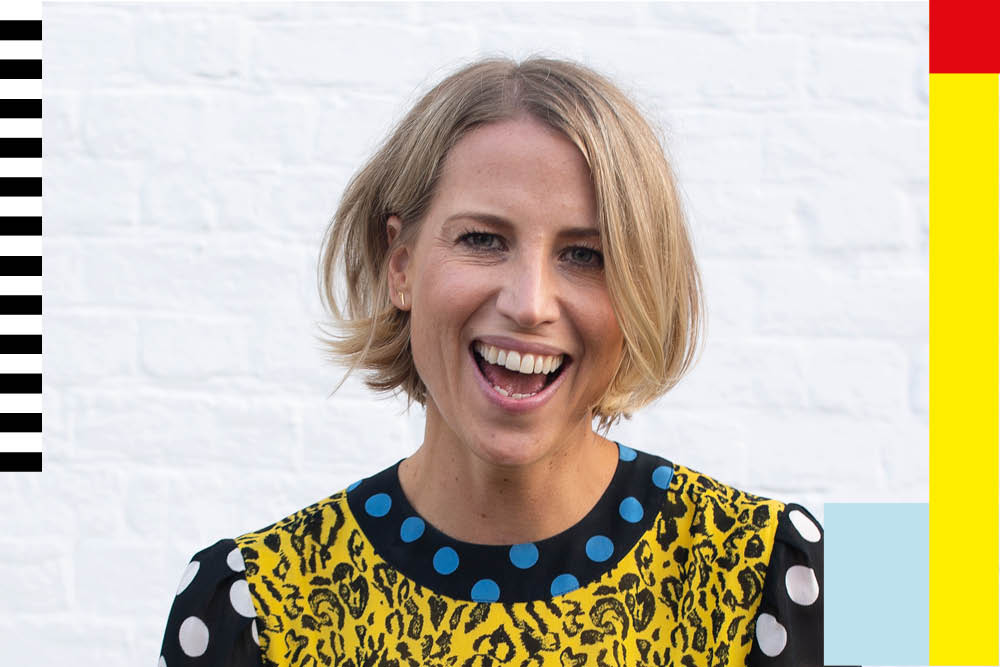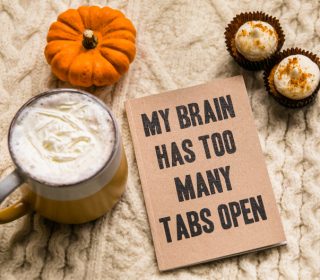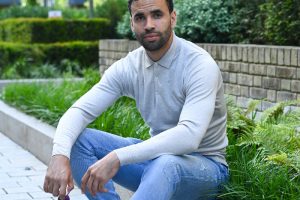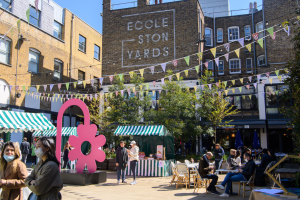Founder Focus: Becky Willan on Given London

Becky Willan, Managing Director and Co-Founder of sustainability and purpose-driven marketing and advertising agency, Given, sat down with BALANCE to talk starting up a business, not having a plan B, and how sometimes, sleep trumps balance.
What was your eureka moment?
I have always worked in the world of corporate sustainability – helping businesses to responsibly manage the impact they have on people, communities and the environment.
I’ve always believed that sustainability should be seen as one of the most important business functions. When I started my career it was viewed by many as super technical, or very worthy, or both – and was never seen to add much value. I was always frustrated about how limited and narrow the impact was, even if the potential was amazing.
I realised that if you want to create real change and impact, then you need the science, but you also need creativity. You need insight into what people want and how they behave. And you need ideas that make sense and inspire people. What better place to look for these skills than in the world of branding and advertising? It’s an industry with some of the most insightful and creative thinkers around.
I started hatching a plan with a colleague who worked for another business in the same parent company. Me – the sustainability person, and him the advertising person. Our idea was that the best way to build a successful brand was by making it a force for good. So we started to think about the kind of agency you’d create to make that happen.
What was your elevator pitch?
We wanted to set up a different kind of branding agency – one that focused more on what brands did, and not just what they said. Given’s ‘brand purpose’ is to help brands to grow, by doing good.
The business case for doing this was always there, but it’s got stronger than ever over the last ten years. People want to work for companies that share their values. Consumers want to buy from brands that stand for more than making a profit. The world is facing some huge challenges and it’s incumbent on the private sector to play their part – even investors agree with this now.
To do ‘brand purpose’ well, you need 3 things. First, rigorous thinking and a deep knowledge of sustainability – the social and environmental issues that businesses should be thinking about. These issues are complicated and interconnected, so there can often be unintended consequences. Being able to help brands navigate this is essential to building credible strategies.
Second, you need to understand how to create change within complex organisations, because ‘brand purpose’ is nothing without action. It might sound obvious, but if you want to create positive impact, you have to know how to make things happen – and this can be hard in huge organisations. We believe successful implementation comes down to a simple equation: 10 per cent great idea, 40 per cent great plan and 50 per cent internal buy-in.
And third, you need creativity that generates big ideas that people everywhere can get excited about. We’ve built a really amazing team of creatives and designers to make sure that our ideas are as powerful as any you’d find in the best advertising agencies.
One thing that I’m really proud of is that this idea of ‘brand purpose’ is still completely at the heart of what we do, ten years later.
How did you test your idea?
Starting a new agency isn’t the kind of idea that’s easy to test. And it’s certainly not a conversation that would have gone down well with my boss at the time! But we believed so much in what we wanted to do, that we decided to take the plunge anyway.
We gave ourselves six months to win our first big client. If we’d failed, we would have put it down to experience and started looking for new jobs. But our gamble (and a lot of hard work, plus a bit of luck) paid off – our first client was Virgin!
What advice would you give someone thinking of starting a business on their own?
At the start, I worried so much about the little details – what would the agency be called or what would our business cards look like. These things are important, but don’t let them distract you from what you should really be doing – making and selling the product (whatever that is!).
It’s also really important to know when to let go and bring in the experts. In the early days, you’re frequently doing everything – from finances, to purchasing and marketing. This can lead to some control-freaky habits down the line!
Do you have a mentor or are you one?
Yes, I have an amazing mentor and it was important to me that she was a woman. On a business level, she’s helped me develop the proposition and think about the best way to grow a business like Given – she’d been there and done that with her own innovation consultancy. And on a personal level, she has helped me build my confidence and focus on what really matters. Anyone who knows her would see her imprint all over what we do and how we work today.
I also mentor one of our Strategy Consultants here at Given. People say that mentors get as much out of the relationship as the mentee and now I can see how that’s true!
What’s your plan B?
I genuinely don’t have one! It’s amazing to do a job you feel so passionate about and I can’t imagine anything else coming close.
What is the most worthwhile investment (time, energy, money) that you have made?
A couple of years ago, I decided to bring in a really experienced Managing Partner to help me run and grow the business. His background was in branding and innovation – he’d worked in some of the world’s best consultancies. Hiring someone like that felt like a big deal at the time, in terms of the investment, but also because I knew I had to let go of a few things! But I’ve learned so much from him and he’s played a pivotal role in the amazing growth we’ve had over the last 3 years.
What one failure are you glad you experienced?
Running a growing business requires a huge amount of resilience, and so it’s essential not to dwell on failures. I don’t think we’ve had any disasters, but we have definitely made mistakes, especially when it comes to hiring and managing people.
It’s tempting to rush a decision to bring people in when you’re busy and have lots of projects to deliver, but I’ve found that unless you take the time to hire people based on your values, and not just their skill set, then there’s a good chance it won’t work out.
And obviously, when you’ve got amazing people in the team, you need to keep them. Being in a fast-growing business provides brilliant opportunities for progression, but we haven’t always made sure that people have the clarity on what’s needed and the right support to get there. That’s something we’ve changed over the last couple of years.
What is coming up for Given?
You don’t need to work in branding to know that the work we do is more important than ever. We are facing a climate emergency – the expectations on brands are higher than ever, but so are the potential rewards of getting it right.
Over the next two years, we have ambitious plans to grow the agency from 30 to 50 people so that we can do bigger projects with bigger positive impacts. We plan to expand internationally, starting with a focus on one or two key European cities where we already have clients. We’ll also be doing more thought leadership and challenging the marketing and sustainability community to be more disruptive and impactful in how they think about ‘brand purpose’.
What is the book you would recommend that everyone reads and why?
Everyone working in male-dominated corporates (and let’s face it, most corporates still are led by men) should read What Works by Iris Bohnet. It’s about applying design thinking to tackling gender inequality in the workplace. It reminds us that changing the way that people work is hard. But I love the combination of powerful stories and shocking statistics to illustrate the challenge, and the simple, elegant solutions put forward for designing out unconscious bias and discrimination from organisations, big and small. I think the wider sustainability community could learn a lot from this.
How do you find balance?
For me, work-life integration is a more helpful, and achievable, construct than work-life balance. Some weeks – especially when I’m travelling for work – are so busy and exhausting that it’s less about balance and more about simply getting enough sleep.
So for me, it’s about the little actions that help me reconnect with the other things that are important in my life. Cooking a delicious dinner for my husband or friends, taking my border terrier Otto for a walk along the canal or to Epping Forest, or taking the occasional hot yoga class at Fierce Grace City.








